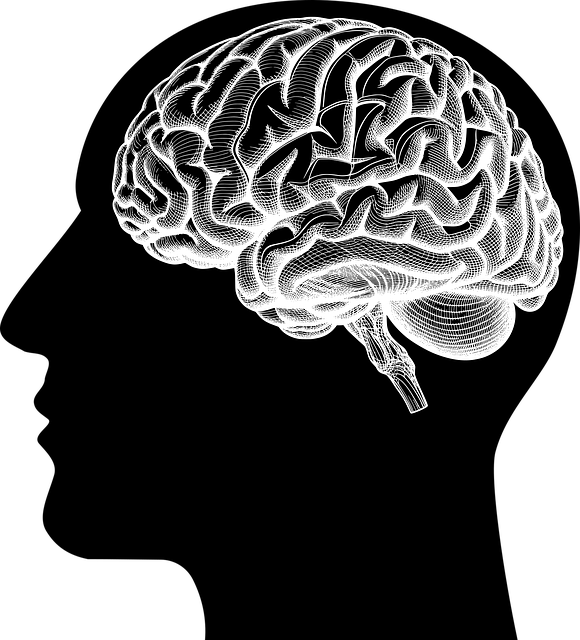Mental healthcare must prioritize cultural sensitivity to effectively serve diverse patients. Superior Exposure and Response Prevention Therapy (SERP), an evidence-based approach, tailors treatments to incorporate culturally relevant strategies for trauma and anxiety, improving outcomes and understanding. Community Outreach Programs and Mental Health Education foster cultural awareness, while Resilience Building initiatives can be enriched by cultural elements, strengthening coping abilities and respecting backgrounds. SERP facilitates dialogue about cultural practices, enhances therapy safety, and supports risk management. Cultural competency training for healthcare providers is vital to address barriers, promote inclusive practices, and prevent burnout. Integrating cultural sensitivity leads to more effective interventions, improved treatment adherence, and deeper results in managing complex issues like trauma and anxiety disorders.
In today’s diverse society, cultural sensitivity is paramount in mental healthcare. Understanding cultural diversity ensures effective treatment for a wide range of patients. This article explores key aspects of culturally responsive practice, focusing on strategies like Superior Exposure and Response Prevention (SERP) Therapy to overcome barriers. We delve into identifying cultural nuances, training for competency, and enhancing patient outcomes by embracing diverse perspectives. By adopting these approaches, mental health professionals can provide more inclusive and successful care.
- Understanding Cultural Diversity in Mental Healthcare
- The Role of Superior Exposure and Response Prevention Therapy (SERP) in Cultural Sensitivity
- Identifying Cultural Barriers to Effective Treatment
- Strategies for Culturally Responsive Practice
- Enhancing Patient Outcomes through Cultural Competency Training
Understanding Cultural Diversity in Mental Healthcare

In today’s diverse society, mental healthcare practices must embrace cultural sensitivity to provide effective treatment for a broad spectrum of patients. Understanding cultural diversity goes beyond recognizing racial and ethnic differences; it involves appreciating the vast array of beliefs, values, and traditional healing practices that shape individuals’ lives. For instance, Superior Exposure and Response Prevention Therapy (SERP), while an evidence-based approach, must be tailored to respect and incorporate culturally relevant strategies for addressing trauma and anxiety.
Community Outreach Program Implementation and Mental Health Education Programs Design play pivotal roles in fostering cultural sensitivity. By engaging with communities, mental health professionals gain insights into local needs, preferences, and barriers to care. This knowledge enables the creation of culturally tailored interventions, such as SERP, that resonate with diverse populations, thereby enhancing treatment outcomes. Resilience Building initiatives, too, can be enriched by incorporating cultural elements, strengthening individuals’ ability to cope while respecting their unique backgrounds.
The Role of Superior Exposure and Response Prevention Therapy (SERP) in Cultural Sensitivity

In the realm of mental healthcare, cultural sensitivity is a cornerstone for effective treatment and positive thinking. One evidence-based approach that has proven valuable in fostering cultural sensitivity is Superior Exposure and Response Prevention Therapy (SERP). SERP is designed to help individuals confront and manage their fears and anxiety by gradually exposing them to culturally significant triggers while preventing avoidance behaviors. By doing so, it not only aids in the treatment of various mental illnesses but also plays a crucial role in reducing mental illness stigma within diverse communities.
Through SERP, mental health professionals can facilitate meaningful dialogue around cultural beliefs and practices, helping clients navigate complex issues related to identity and mental well-being. This process supports risk management planning for mental health professionals by creating safer, more inclusive therapy environments. By integrating cultural sensitivity into practice, healthcare providers can ensure that their treatment approaches are tailored to meet the unique needs of each client, fostering positive outcomes in a diverse world.
Identifying Cultural Barriers to Effective Treatment

Cultural barriers can significantly impact the effectiveness of mental healthcare services, hindering progress and leading to poor outcomes for many clients. These barriers often stem from differences in values, beliefs, and communication styles across diverse cultural backgrounds. For instance, some individuals may have unique understandings of mental illness and healing, which can conflict with mainstream therapeutic approaches. In cases where the client’s cultural context is not fully appreciated or addressed, treatment plans may fail to resonate, resulting in disengagement or non-compliance.
Superior Exposure and Response Prevention Therapy (SERPT), while evidence-based, must be tailored to consider these cultural nuances. Healthcare Provider Cultural Competency Training plays a pivotal role here, equipping practitioners with the knowledge and skills to identify and overcome barriers. By fostering a deeper understanding of diverse cultures, this training enables mental health professionals to adapt their practices, promoting more inclusive self-care strategies and preventing burnout. Moreover, recognizing and respecting cultural differences can enhance therapeutic alliances, encouraging clients to openly share their experiences and engage in treatments aligned with their beliefs.
Strategies for Culturally Responsive Practice

Incorporating cultural sensitivity into mental healthcare practice requires a multifaceted approach. One effective strategy is Superior Exposure and Response Prevention Therapy (SERP), which involves gradually exposing individuals to culturally relevant stimuli while preventing avoidance responses. This technique helps patients confront and overcome fears or anxieties related to their cultural background, fostering a sense of safety and acceptance.
Moreover, Compassion Cultivation Practices can significantly enhance cultural responsiveness. Training healthcare providers in Healthcare Provider Cultural Competency Training programs equips them with the skills to offer empathetic, non-judgmental care that respects diverse beliefs and values. By promoting mental health awareness and understanding across cultures, these practices contribute to more effective treatment outcomes and stronger therapeutic alliances.
Enhancing Patient Outcomes through Cultural Competency Training

Cultural sensitivity is a cornerstone of modern mental healthcare, playing a pivotal role in enhancing patient outcomes and fostering inclusive treatment environments. By integrating cultural competency training into practice, therapists can better understand their patients’ diverse backgrounds, beliefs, and experiences, leading to more effective and tailored interventions. This approach is particularly crucial when addressing complex issues like trauma, where cultural context significantly influences healing processes.
One evidence-based method that benefits from this cultural awareness is Superior Exposure and Response Prevention Therapy (SERPT). SERPT, with its roots in cognitive behavioral therapy, encourages patients to confront fears through gradual exposure while preventing avoidance responses. When delivered with a culturally sensitive mindset, SERPT can address the unique needs of diverse patient populations, incorporating their specific cultural practices and perspectives into the therapeutic process. This not only enhances treatment adherence but also leads to more profound and lasting results, particularly in managing anxiety disorders and post-traumatic stress. Compassion cultivation practices, crisis intervention guidance, and mind over matter principles are all integrated seamlessly within this framework, ensuring that patients from various cultural backgrounds receive compassionate, effective, and culturally responsive care.
Incorporating cultural sensitivity into mental healthcare practice is no longer a consideration but a necessity. By understanding cultural diversity, leveraging evidence-based approaches like Superior Exposure and Response Prevention Therapy (SERP), identifying and overcoming cultural barriers, and implementing culturally responsive strategies, healthcare providers can significantly enhance patient outcomes. Training in cultural competency ensures that patients from diverse backgrounds receive care that respects their unique needs and perspectives, fostering a more inclusive and effective mental health system.














